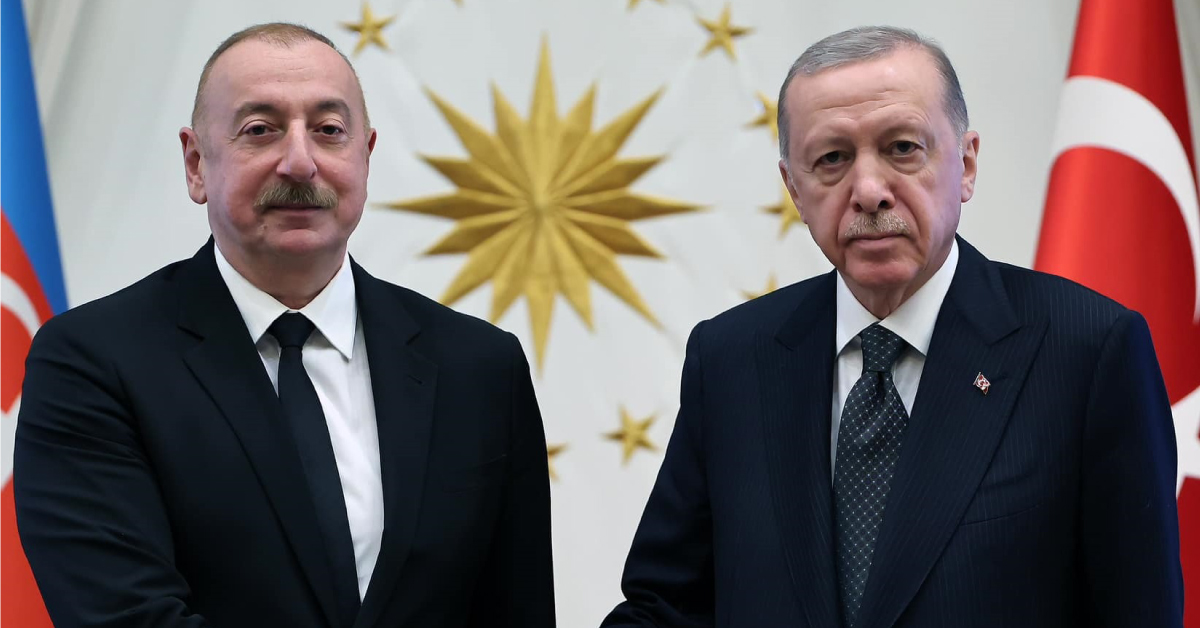“GEGHARD”
SCIENTIFIC ANALYTICAL
FOUNDATION
2026
2026
2024-09-27

To enhance their global influence, states employ not only military and economic tools but also what is known as "soft power." They seek to expand their cultural influence in countries they consider strategically significant. This phenomenon is termed "soft power application." Turkey, aiming to elevate its global standing, has increasingly focused on this policy, particularly evident in Turkic-speaking countries, especially Azerbaijan.
Linguistic and religious commonalities, which form the core of national cultures, have enabled Turkey to more effectively implement its "soft power" strategy in Azerbaijan. Following Azerbaijan's independence in 1991, Turkey has steadily increased its strategic influence there, blending economic partnerships with robust cultural and ideological initiatives under the motto "one nation, two states."
One of the most efficient tools of Turkey's soft power strategy in Azerbaijan has been the propagation of pan-Turkic ideology. This ideology aims to unite Turkic-speaking peoples, with Turkey positioning itself as the movement's vanguard. Cultural programs, media programs, and student exchanges have significantly contributed to the success of this strategy. For instance, the Turkish Council of Higher Education (YÖK) has been instrumental in educational cooperation, with plans underway to establish a joint Turkish-Azerbaijani university in Baku. There are also various other initiatives in progress.
Turkish television series have gained immense popularity in Azerbaijan, serving as not just entertainment but also transmit Turkish values and history, ensuring Turkey's cultural presence in the daily lives of Azerbaijanis. The influence of these TV series on the Azerbaijani society is so high, that in 2008, Azerbaijan temporarily banned their broadcast and invested heavily in producing domestic series. However, despite this restriction, Azerbaijanis continue to watch Turkish series on online platforms.
Furthermore, Turkey provides scholarships and educational programs that enable Azerbaijani students to receive higher education in Turkish universities. The Organization of Turkic States (OTS, (OTS, formerly the Cooperation Council of Turkic-Speaking States or Turkic Council), founded in 2009, significantly contributes to enhancing Turkey's influence. The OTS aims to foster cooperation among Turkic states. Through the activities of the OTS and similar entities, Turkey's cultural and political leverages in Azerbaijan and other Turkic-speaking nations has grown.
It is also important to mention the Turkic-language media, such as TRT AVAZ, which broadcasts in Azerbaijan and promotes Turkish viewpoints on regional and global affairs. While the majority of programs is in Turkish, the channel also offers content in Azerbaijani, Kazakh, Uzbek, and Turkmen.
Turkish language is a key tool in Turkey's soft power policy. Many Azerbaijanis are fluent in Turkish, as there are Turkish-language schools, universities, and cultural centers operating in the country. Student and cultural exchange programs further deepen these ties. For example, according to 2015 data, Azerbaijan had the highest participation in the Turkish proficiency exam conducted by the Yunus Emre Institute. It should be noted that this institute was founded in Ankara in 2007 by the Turkish government to promote Turkish culture worldwide.
Turkey also employs "soft power" through religious diplomacy. Although both countries are secular, the majority of their populations are Muslim, allowing Turkey to increase its influence through religious organizations. The only complicating factor is that the majority of Azerbaijanis are Shia, while Turks are Sunni. Among the most active organizations are the Diyanet or Directorate of Religious Affairs of Turkey and the Turkish Religious Foundation (TDV). The latter was established in March 1975 to support the work of the Directorate of Religious Affairs and to promote Islam. These organizations build mosques in Azerbaijan, spread Islamic education, and present Turkey as a custodian of Islamic values. The students of the Turkish High School in Baku, which belongs to the Religious Foundation of Turkey, achieve the best results in Azerbaijan.
It should be noted that the Azerbaijani authorities are currently trying to manage these processes as much as possible in various ways, one of which is the development of an "Azerbaijani identity". The widespread use of the Azerbaijani language in public life, media, and education is actively encouraged. The government supports the production of Azerbaijani TV series, films, and news programs.
While Azerbaijan permits the operation of Turkish religious organizations, it subjects rigorously oversights them. All religious entities, including mosques and religious schools, are mandated to register with the State Committee for Work with Religious Institutions. This committee imposes regulations to curtail the influence of foreign religious groups, particularly those from Turkey. Azerbaijan has also taken steps to close unregistered mosques and religious centers that do not comply with state requirements. One of the examples is the closure of the Ilahiyat Mosque in Baku, constructed by Turkey in 2009.
Thus, Turkey skillfully uses a number of "soft power" tools to have a deep and lasting impact on Azerbaijan. By combining cultural diplomacy, economic cooperation, religious outreach, and political support, Turkey has gained significant influence in Azerbaijan. In response, the Azerbaijani government has implemented various measures to mitigate this influence. In this context, the slogan "one nation, two states" has been reinterpreted as a purely political tool, utilized primarily to address political challenges.